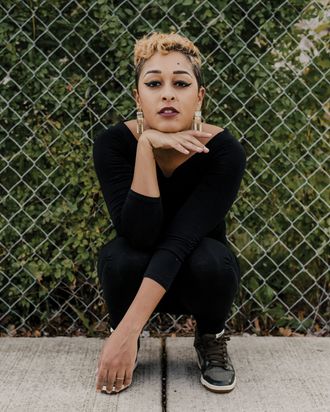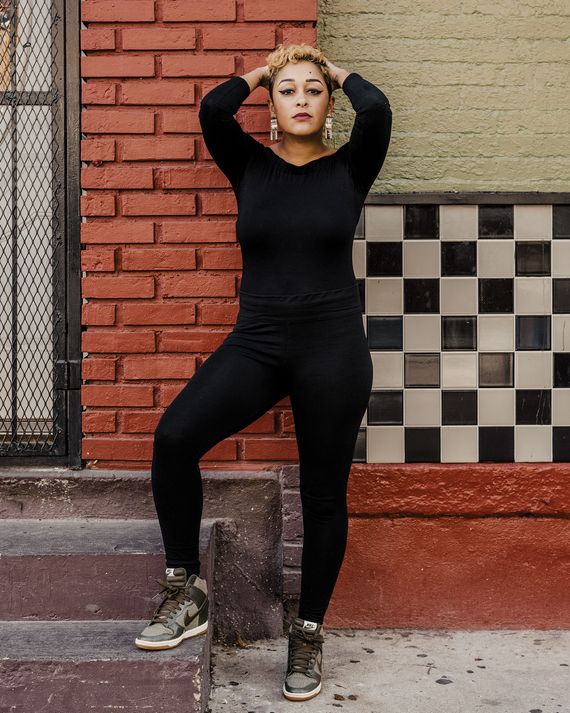
Award-winning poet, playwright, scholar, and sociologist Dr. Eve Ewing has devoted her work to her concern with Chicago’s past and present. She is the author, most recently, of Ghosts in the Schoolyard: Racism and School Closings on Chicago’s South Side and the writer for Marvel’s Ironheart comic series, where she brings the black girl genius of Riri Williams into vivid relief. Ewing is a writer of great depth, reverence, and enthusiasm, one of the city’s greatest critics and champions. She’s also extremely funny, an avid baker, a founder of a black nerd game night, a newlywed, and a visual artist. Her repertoire and curiosity are without boundary. She is Chicago’s true mayor; a young, charismatic guardian of the city’s possibility and spirit, who is goading us to do more and do better. Ewing’s tenacious regard for the people of the city is at the forefront of everything she does, and for that reason, she’s very much my heroine and a model of all that a writer can be.
What made you want to be a sociologist and a writer here, in Chicago?
I was raised to believe that we all have a responsibility to do the best we can for the people around us. I grew up with a very acute sense of the issues facing the city but also the strengths of the city and the many people who are organizing and educating every day, who have been fighting for decades to try to make the city a little bit better for everybody. I’m very humbled and I’m honored by that tradition. I never really thought that there was any alternate possibility.
What do people misunderstand about Chicago?
I think people think that Chicago is some kind of uniquely monstrous city. While it’s true that there are many things about Chicago that are kind of singular and distinct, it’s more accurate to say that the problems we face here are a microcosm of the broader, fundamental problems of American society. One, that it was founded on a bedrock of racial inequality and segregation, a kind of deeply entrenched, violently enforced segregation.
The second thing is that in Chicago, we have a massive disparity in wealth, resources, and access, the rights of people to have basic things that they need to live with dignity in a city that has the wealth and the resources to ensure that everybody is successful. People live in poverty in a place where there’s so much wealth that it’s kind of unconscionable. The problems of Chicago are really the problems of America.
Can you talk to me about the relationship between your scholarship and your practice as a poet?
I’m always trying to tell the stories that are interesting to me using whatever tools are available at the moment. Poetry is a space that I like because it allows me to be really imaginative in a way that isn’t the same in the world of scholarship.
Part of me is an extremely argumentative person, and I really also enjoy just finding information and seeing how I can piece it together to figure out something that had previously seemed inscrutable. But part of me just likes to play and I think poetry allows for that a little bit more. But I will say I’m working on a poetry collection now that is about the 1919 race riot in Chicago, and my idea for that came directly out of the research that I was doing for Ghosts in the Schoolyard. So maybe they’re condensing, converging on each other a little bit.
Who are some of the writers and black feminist thinkers that showed you what deep inquiry meant?
There are so many. One is Gwendolyn Brooks, [who showed me] deep inquiry in the sense of looking very, very closely at a person or a place, which is a quality that is shared by the best poets and the best social scientists. Mariame Kaba is a prison abolitionist organizer, who I think does the work that all of us should do, which is to ask, in a really critical fashion, “Why is the world like this? Why does it have to be like this and how can we live in a different way?” which is kind of a basic tenant of black feminism. That’s a black feminist practice, to ask, “How can things be otherwise, and how can we make that true in a small way right where we are?”
What gives you joy in your free time? I would guess from your Instagram that it maybe has to do with bread.
So many things. I really like hanging out with my friends, and my family, and my husband. I love making bread. I love running and exercise. I’m really into sleeping. I do feel very over-scheduled, and when I do have genuinely free time, I sometimes have a hard time figuring out what to do with myself. But what I am good at is just really enjoying that song on the radio for a couple of minutes or taking a slow walk to get to a place and just enjoying the slow walk. I try to live my life in a way that allows me to find joy in every day.


